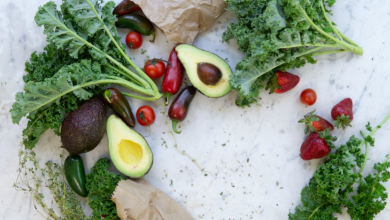Foods to Steer Clear of When Managing High Blood Pressure

Navigating Your Diet to Manage High Blood Pressure
In the United States, high blood pressure, or hypertension, is a common issue affecting millions. It’s often connected to lifestyle factors such as obesity, smoking, and lack of physical activity. Fortunately, dietary changes can significantly impact blood pressure levels and improve your overall health.
Understanding Hypertension
Hypertension occurs when the force of your blood against your artery walls is too strong. This can be due to various factors, including poor lifestyle habits or other health conditions like diabetes and obesity. Monitoring your blood pressure is essential since hypertension often shows no obvious symptoms.
The Importance of Managing Blood Pressure
Elevated blood pressure can lead to serious health problems, including heart attacks and strokes. It can cause your arteries to become rigid, which restricts blood flow and leads to a range of cardiovascular issues.
Dietary Shifts for Blood Pressure Control
Adopting a heart-healthy diet is a key strategy in managing high blood pressure. The DASH (Dietary Approaches to Stop Hypertension) diet is often recommended, emphasizing fruits, vegetables, whole grains, and low-fat dairy, along with foods high in calcium, magnesium, and potassium.
Gradual Changes for Long-Term Success
Improving your diet doesn’t have to happen overnight. Start by introducing small changes, like adding an extra serving of vegetables to your meal or using less butter. Consistency is crucial; make these changes part of your daily routine to build lasting habits.
Foods to Limit or Avoid
Being aware of what to avoid is just as important as knowing what to eat. Processed and high-sodium foods can increase blood pressure, as can foods high in saturated fats and sugars.
Watch Out for Salt
Too much sodium can cause fluid retention, raising blood pressure. Be mindful of the “salty six,” which include common foods like bread, pizza, and canned soup. Aim for less than 1,500 milligrams of sodium per day.
Saturated Fats to Skip
Foods rich in saturated fats, such as red meat and full-fat dairy products, can negatively impact heart health. Opt for healthier swaps, like using olive oil instead of butter.
Sweet Stuff to Sidestep
Excessive sugar intake can contribute to weight gain and blood pressure issues. Limit consumption of sweets and sugary beverages, and watch out for hidden sugars in processed foods and drinks.
Processed Meats and Refined Carbs: Not Ideal
Processed meats are often high in sodium, while refined carbs lack beneficial nutrients. Both can affect heart health and should be consumed sparingly.
Be Cautious with Canned Goods
Choose low-sodium or no-added-salt options when buying canned foods, as they often contain preservatives and excess salt.
Alcohol and Caffeine in Moderation
Alcohol can temporarily spike blood pressure, and binge drinking can have long-term effects. For non-regular caffeine consumers, caffeine may also cause a temporary increase in blood pressure.
By focusing on foods like whole grains, nuts, lean poultry, and fish, and limiting intake of sodium and unhealthy fats, you can effectively manage your blood pressure and lead a healthier lifestyle.




